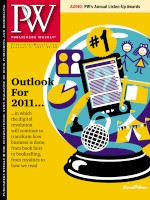Mark Twain's Adventures of Huckleberry Finn is a classic by most any measure—T.S. Eliot called it a masterpiece, and Ernest Hemingway pronounced it the source of "all modern American literature." Yet, for decades, it has been disappearing from grade school curricula across the country, relegated to optional reading lists, or banned outright, appearing again and again on lists of the nation's most challenged books, and all for its repeated use of a single, singularly offensive word: "nigger."
Twain himself defined a "classic" as "a book which people praise and don't read." Rather than see Twain's most important work succumb to that fate, Twain scholar Alan Gribben and NewSouth Books plan to release a version of Huckleberry Finn, in a single volume with The Adventures of Tom Sawyer, that does away with the "n" word (as well as the "in" word, "Injun") by replacing it with the word "slave."
"This is not an effort to render Tom Sawyer and Huckleberry Finn colorblind," said Gribben, speaking from his office at Auburn University at Montgomery, where he's spent most of the past 20 years heading the English department. "Race matters in these books. It's a matter of how you express that in the 21st century."
The idea of a more politically correct Finn came to the 69-year-old English professor over years of teaching and outreach, during which he habitually replaced the word with "slave" when reading aloud. Gribben grew up without ever hearing the "n" word ("My mother said it's only useful to identify [those who use it as] the wrong kind of people") and became increasingly aware of its jarring effect as he moved South and started a family. "My daughter went to a magnet school and one of her best friends was an African-American girl. She loathed the book, could barely read it."
Including the table of contents, the slur appears 219 times in Finn. What finally convinced Gribben to turn his back on grad school training and academic tradition, in which allegiance to the author's intent is sacrosanct, was his involvement with the National Endowment for the Arts' Big Read Alabama.
Tom Sawyer was selected for 2009's Big Read Alabama, and the NEA tapped NewSouth, in Montgomery, to produce an edition for the project. NewSouth contracted Gribben to write the introduction, which led him to reading and speaking engagements at libraries across the state. Each reading brought groups of 80 to 100 people "eager to read, eager to talk," but "a different kind of audience than a professor usually encounters; what we always called ‘the general reader.'
"After a number of talks, I was sought out by local teachers, and to a person they said we would love to teach this novel, and Huckleberry Finn, but we feel we can't do it anymore. In the new classroom, it's really not acceptable." Gribben became determined to offer an alternative for grade school classrooms and "general readers" that would allow them to appreciate and enjoy all the book has to offer. "For a single word to form a barrier, it seems such an unnecessary state of affairs," he said.
Gribben has no illusions about the new edition's potential for controversy. "I'm hoping that people will welcome this new option, but I suspect that textual purists will be horrified," he said. "Already, one professor told me that he is very disappointed that I was involved in this." Indeed, Twain scholar Thomas Wortham, at UCLA, compared Gribben to Thomas Bowdler (who published expurgated versions of Shakespeare for family reading), telling PW that "a book like Professor Gribben has imagined doesn't challenge children [and their teachers] to ask, ‘Why would a child like Huck use such reprehensible language?' "
Of course, others have been much more enthusiastic—including the cofounders of NewSouth, publisher Suzanne La Rosa and editor-in-chief Randall Williams. In addition to the mutual success of their Tom Sawyer collaboration, Gribben thought NewSouth's reputation for publishing challenging books on Southern culture made them the ideal—perhaps the only—house he could approach with his radical idea.
"What he suggested," said La Rosa, "was that there was a market for a book in which the n-word was switched out for something less hurtful, less controversial. We recognized that some people would say that this was censorship of a kind, but our feeling is that there are plenty of other books out there—all of them, in fact—that faithfully replicate the text, and that this was simply an option for those who were increasingly uncomfortable, as he put it, insisting students read a text which was so incredibly hurtful."
La Rosa and Williams committed to a short turnaround, looking to get the finished product on shelves by February. Mark Twain's Adventures of Tom Sawyer and Huckleberry Finn: The NewSouth Edition will be a $24.95 hardcover, with a 7,500 first printing. In the meantime, Gribben has gone back to the original holographs to craft his edition, which is also unusual in combining the two "boy books," as he calls them, into a single volume. But the heart of the matter is opening up the novels to a much broader, younger, and less experienced reading audience: "Dr. Gribben recognizes that he's putting his reputation at stake as a Twain scholar," said La Rosa. "But he's so compassionate, and so believes in the value of teaching Twain, that he's committed to this major departure. I almost don't want to acknowledge this, but it feels like he's saving the books. His willingness to take this chance—I was very touched."



 Volume 258
Issue 01
01/03/2011
Volume 258
Issue 01
01/03/2011





